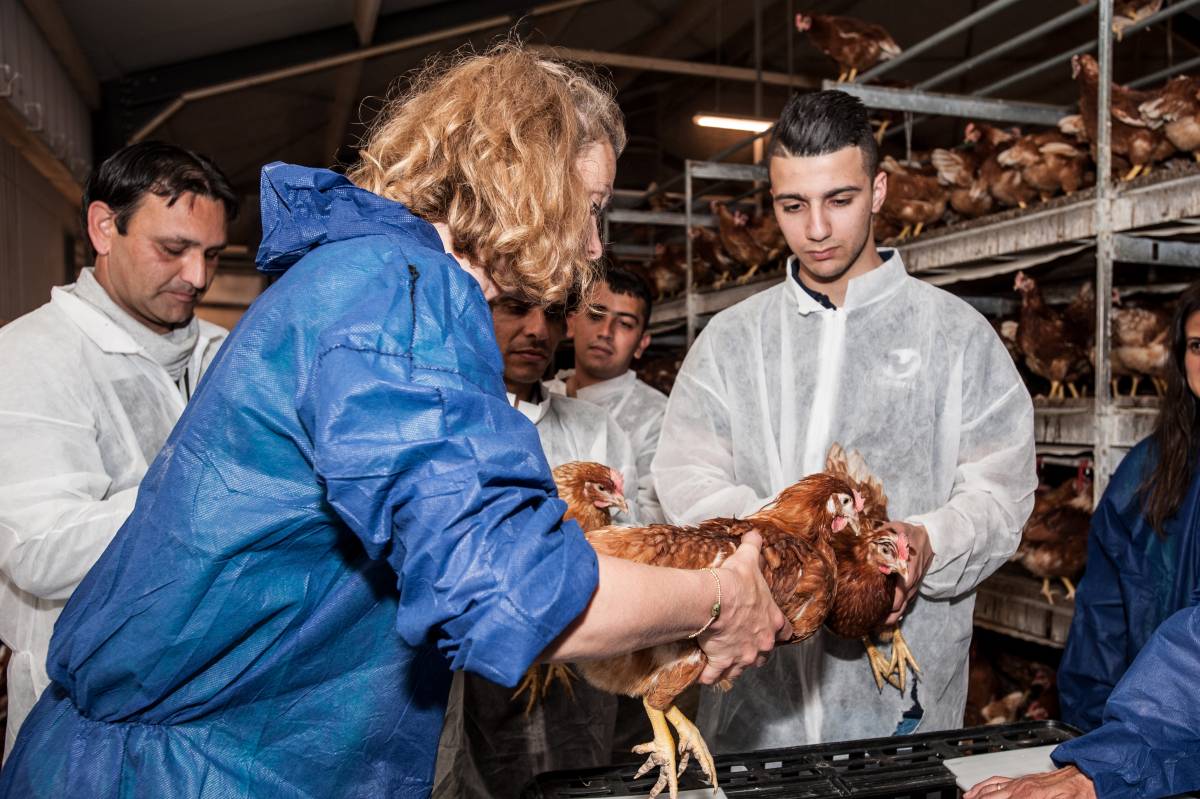EonA introduced the upright method already back in 2016. We saw serious injuries caused such as fractured or crushed wings and legs, plus extremely loud screaming of the birds during catching. We also knew that poultry do not have a diaphragm thus when held upside down all their weight is on their lungs causing breathing problems. We also found several scientific articles showing that hens produce much higher levels of stress hormones when grabbed by a leg and held upside down compared to the upright method.
We started offering a theory and practical training course to commercial chicken catching companies in the Netherlands, of which six have already participated. Gemril was the first catching company that wanted to be trained, soon other catching companies became interested, like Den Ouden, Van den Broek, Jekal, Smeding and Pots. Regularly we also give refresher-courses, as employees within catching companies come and go so there are always new catchers in the team. Our courses are interactive, stimulating and take into account the expertise and opinions of the catchers themselves. They are fun, and educational. With commercial catchers trained in the upright method, we began encouraging egg companies, already with welfare standards, to make the switch. There was a snowball effect. Rondeel was the first, then Kipster, Demeter and egg packaging-centre De Grote Kamp, which supplies natural food stores like Ekoplaza and Odin. In 2022 also Eike, a label from Smits bron van energie, will catch their birds upright for the first time. Eike eggs are sold at Sligro. More companies and individual farmers are known to be interested.
Upright catching takes just 1.7 times longer and costs less than 0,0004 per egg (calculation for Kipster). Hiring more catchers means you can be done in the same time as before. We have shown it is feasible, also for intensive farms with 20.000-30.000 hens. It is much more pleasant for the hens, but also for the catchers as they have less chickens to carry per hand and there is less noise causes by frightened chickens. There is less noise, less stress, less rush, less risk of injuries and the most important, the catchers feel they are now working with sentient animals. This has brought all sorts of other benefits- namely more humane handling, a more professional and empathic attitude, and pride. Catching hens is no longer seen as a dirty job that no one talks about, but a professional job requiring expertise, responsibility and skill and that one can be proud of.
Eyes on Animals showed that there is another way, and together with chicken catchers and open-minded progressive egg companies we are making serious improvements together. We offer our training to anyone interested and also help catch chickens while present during supervising. We encourage all egg companies to take advantage of this great collaboration. Send Eyes on Animals an email (info@eyesoanimals.com) and we can set up a training date soon or help brainstorm how your company can get involved.


